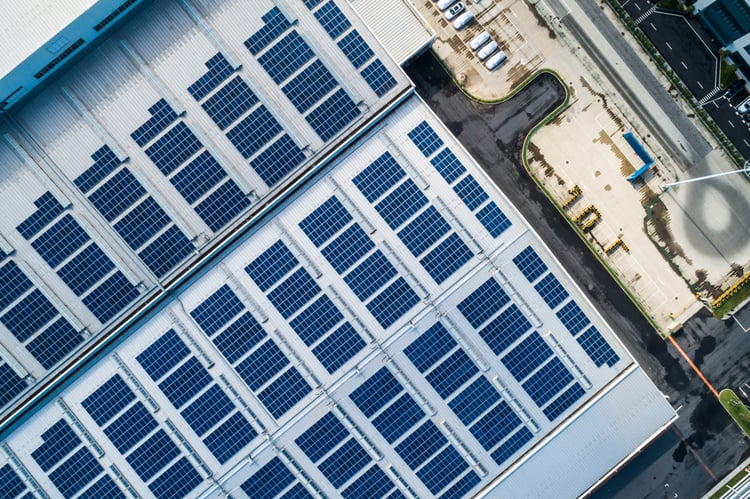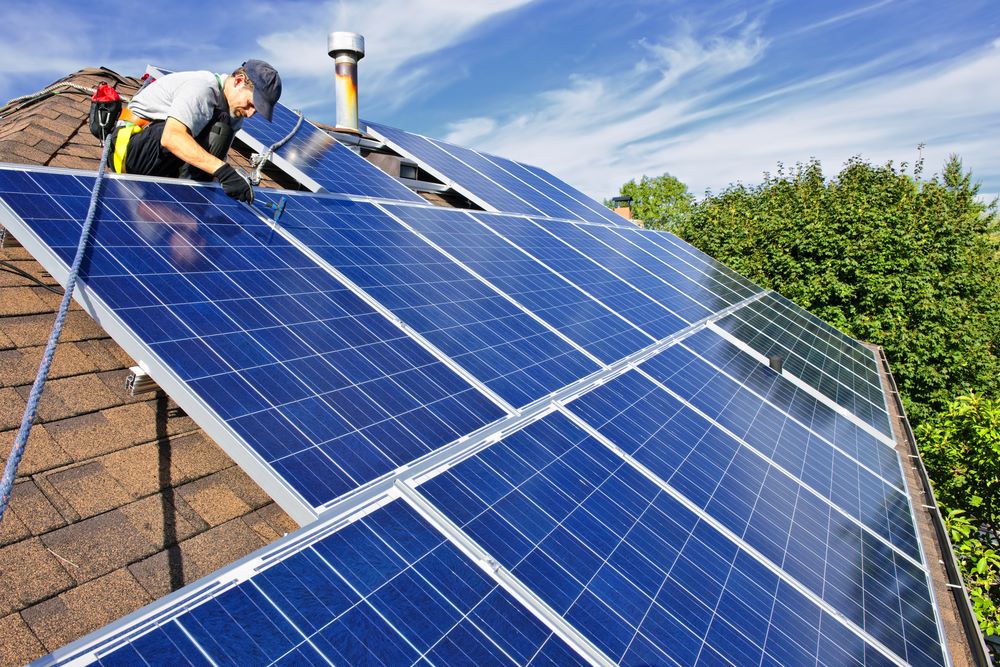The US Congress passed the Inflation Reduction Act on Friday August 12, 2022, and this is great news for the solar power industry. The solar federal tax credit has been increased to 30% and extended until 2034. In addition, there is now a separate federal tax credit for energy storage systems, which is fully independent from the solar incentive.
Before the Act, the Investment Tax Credit for solar power was set to expire in 2024. The incentive rate had already been decreased from 30% to 26% in 2020, and a further reduction to 22% was programmed for 2023. From 2024 onward, there would only be a 10% tax credit for solar PV systems owned by businesses (0% for home installations). There was no dedicated tax credit for energy storage, and battery systems would only qualify if charged with solar panels. In other words, stand-alone batteries were not eligible.
Get a professional solar design for your building and qualify for the 30% federal tax credit.
Here we will summarize how the Inflation Reduction Act changes the federal tax credits for solar power in the near future.
The Solar Investment Tax Credit Has Increased to 30% Again

When the solar federal tax credit was created in 2006, the incentive rate was 30%. This benefit remained available until the end of 2019, when the tax credit was reduced to 26%. Originally, the solar ITC was being phased out according to the following schedule:
- 26% in 2020
- 22% in 2021
- 10% for businesses only from 2022 onward
However, the benefit was extended by Congress in December 2020, keeping the 26% tax credit available until the end of 2022. The schedule for phasing out the ITC was changed:
- 26% until the end of 2022
- 22% in 2023
- 10% for businesses only from 2024 onward
With the Inflation Reduction Act, the solar ITC has been extended once again, this time by a whole decade. The original 30% tax credit has also been restored:
- 30% until the end of 2032
- 26% for residential users, 30% for businesses in 2033
- 22% for residential users, 22.5% for businesses in 2034
- 0% for residential users, 15% for businesses in 2035
- 0% for all solar installations in 2036
This is a major incentive for the US solar industry, since homes and businesses will keep getting the ITC for another 10 years. This can help compensate for recent issues that have slowed down solar installations: high inflation, global supply chain issues, and a recent investigation related to import tariff circumvention in southeast Asia.
Solar Tax Credits of Up to 60% Are Now Available
The Inflation Reduction Act has not only restored the 30% federal tax credit for solar power. There are now several “adders” for commercial solar projects that meet certain conditions, which can potentially increase the federal tax credit to 60%.
- 10% bonus for a minimum percentage domestic content - using construction materials and solar products made in the US.
- 10% bonus for solar projects in brownfields and sites that were previously used by the fossil fuel industry.
- 10% bonus for solar power projects that benefit low-income communities.
Assuming a solar power project can qualify for the three bonuses, the potential tax credit is up to 60%. This means project developers can get a tax deduction of up to $600,000 for every $1 million invested in solar power.
New Federal Tax Credit for Energy Storage Systems

Energy storage can greatly improve the value of solar and wind energy, by making electric power available even when solar panels or wind turbines are not productive. Unfortunately, financial incentives for energy storage have been very limited throughout the US.
Battery systems were already eligible for a federal tax credit before the Inflation Reduction Act, but they were subject to a very restrictive condition:
Only battery systems charged by solar panels were eligible.
This requirement has now been removed, which means the energy storage tax credit is independent from the solar tax credit. In other words, the net cost of battery systems has been effectively reduced by 30% in the US.
The new federal tax credit is available for battery systems with a rated storage capacity of at least 3 kWh, and this includes stand-alone units. Just keep in mind that the benefit for stand-alone batteries becomes available until 2023. Energy storage systems installed in 2022 are still subject to the requirement of being charged with solar power.








